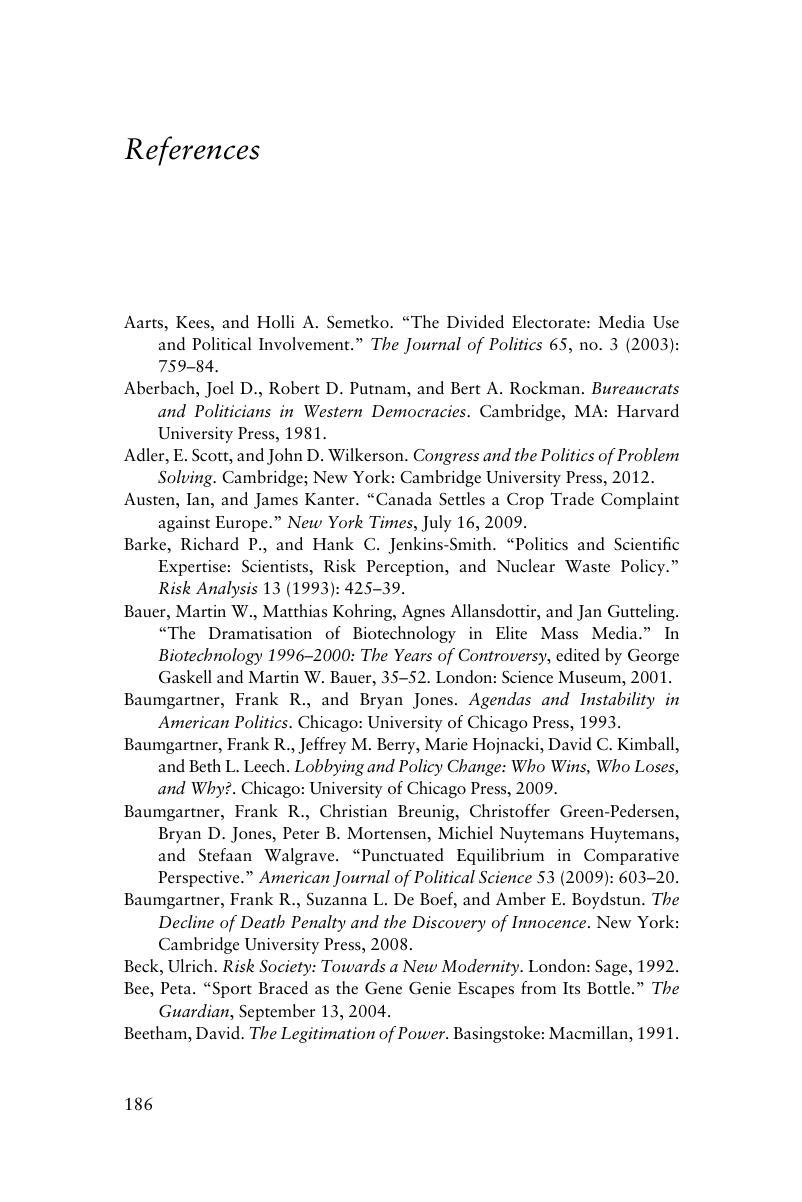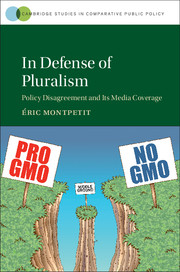Book contents
- In Defense of Pluralism
- Cambridge Studies in Comparative Public Policy
- In Defense of Pluralism
- Copyright page
- Dedication
- Contents
- Figures
- Tables
- Book part
- 1 Introduction
- 2 Disagreement and tone in the media
- 3 Framing and metaphors of disagreement in the media
- 4 Measuring disagreement among policy actors
- 5 Do contentious actors stall policy?
- 6 Who disagrees with whom and why?
- 7 Appreciating the pluralist politics of policy-making
- Book part
- References
- Index
- References
References
Published online by Cambridge University Press: 05 March 2016
- In Defense of Pluralism
- Cambridge Studies in Comparative Public Policy
- In Defense of Pluralism
- Copyright page
- Dedication
- Contents
- Figures
- Tables
- Book part
- 1 Introduction
- 2 Disagreement and tone in the media
- 3 Framing and metaphors of disagreement in the media
- 4 Measuring disagreement among policy actors
- 5 Do contentious actors stall policy?
- 6 Who disagrees with whom and why?
- 7 Appreciating the pluralist politics of policy-making
- Book part
- References
- Index
- References
Summary

- Type
- Chapter
- Information
- In Defense of PluralismPolicy Disagreement and Its Media Coverage, pp. 186 - 199Publisher: Cambridge University PressPrint publication year: 2016

